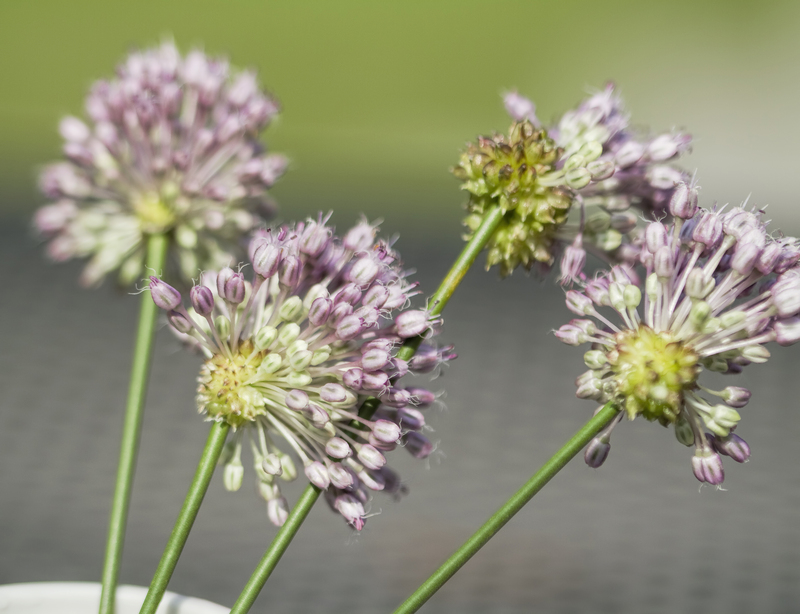Master the Art of Gardening: 9 Tips for Beginners
Posted on 05/06/2025
Master the Art of Gardening: 9 Tips for Beginners
Whether you're dreaming of radiant flowerbeds, bountiful vegetables, or a peaceful green oasis, gardening for beginners can be a truly rewarding journey. With some guidance, patience, and passion, anyone can cultivate a thriving garden at home. This comprehensive guide brings you 9 proven gardening tips for beginners--all designed to help you master the art of gardening right from the start.
Why Gardening is the Perfect Hobby for Everyone
More than just a pastime, gardening offers a wealth of benefits:
- Physical health: Gardening activities like digging, watering, and planting provide low-impact exercise.
- Mental wellness: Connecting with nature has been shown to reduce stress and boost mood.
- Eco-friendly: Home gardens support wildlife, improve air quality, and can help mitigate climate change.
- Self-sufficiency: Grow your own food and enjoy fresh, organic produce straight from your garden.
With these advantages in mind, there's never been a better time to start your gardening adventure. Let's dive into the essential advice every new gardener needs!

1. Choose the Right Location for Your Garden
Location is the foundation of any successful garden. Here's what beginners should keep in mind:
- Sunlight: Most vegetables, herbs, and many flowers need at least 6-8 hours of sunlight a day. Observe your yard to spot the sunniest areas.
- Water access: Pick a spot close to a water source, as regular watering is a must in beginner gardening.
- Drainage: Avoid low-lying, soggy areas. Plants need well-drained soil to thrive.
Pro tip: Start small if you're new to gardening. A few manageable beds or containers are better than becoming overwhelmed by a large plot!
2. Understand Your Soil Type
Soil is the lifeblood of your garden. Before planting, get to know your soil by:
- Testing pH and nutrients: Home soil test kits are inexpensive and easy to use. Aim for a pH between 6.0-7.0 for most plants.
- Determining soil texture: Squeeze a handful of moist soil. Sandy soil feels gritty, clay is sticky, and loam is crumbly and smooth--ideal for most gardens.
- Enriching your soil: Add compost or aged manure to improve structure and fertility.
Healthy soil means healthy plants--the key to mastering gardening from the very first season!
3. Select the Best Plants for Your Climate and Goals
Not all plants will flourish in every garden. Successful garden cultivation begins with choosing the right varieties. Consider:
- USDA Hardiness Zone: Learn your zone to pick plants well-suited to your area's temperatures.
- Sun/Shade needs: Match plants like tomatoes and peppers to sunny spots, and opt for hostas or ferns in shadier areas.
- Growth habit: Decide whether you prefer perennials (return yearly), annuals (one season), or a mix of both.
- Personal preference: Grow what excites you--herbs for cooking, colorful blooms, or easy vegetables like lettuce and radishes.
By choosing wisely, you'll set yourself up for a successful and enjoyable home gardening experience.
4. Start with the Right Tools and Supplies
Essential gardening tools for beginners don't have to break the bank. Invest in quality versions of the basics:
- Trowel: For planting and digging small holes.
- Pruning shears: For trimming plants and harvesting vegetables.
- Watering can or hose: To keep your plants hydrated.
- Gloves: To protect your hands from dirt and thorns.
- Garden fork/spade: For turning soil and mixing in amendments.
Keeping tools organized and clean extends their life and makes every gardening session more enjoyable.
5. Nurture Your Garden with Proper Watering and Fertilizing
Overwatering and underwatering are common mistakes for gardening beginners. Master the art of watering by:
- Watering deeply but infrequently: A thorough soak encourages strong, deep roots. Generally, aim for 1 inch of water per week.
- Morning routine: Water in the early morning to reduce evaporation and prevent fungal problems.
- Fertilizing wisely: Use organic fertilizers or compost to provide ongoing nutrition. Avoid over-fertilizing which can harm plants.
Remember, happy plants are properly hydrated and fed!
6. Practice Smart Planting Techniques
Proper planting is critical for robust growth. Keep these beginner gardening tips in mind:
- Seed packets/garden labels: Follow depth and spacing recommendations closely.
- Transplant shock: Harden off seedlings before moving them outdoors by gradually introducing them to sunlight and wind.
- Companion planting: Some plants help each other grow--basil repels pests near tomatoes, for example.
Plan your garden layout on paper before planting day to maximize space and beauty.
7. Control Weeds and Pests Organically
Weeds and pests can quickly overrun a garden if left unchecked. New gardeners can master sustainable gardening with these strategies:
- Mulching: A 2-3 inch layer of straw, bark, or compost suppresses weeds, conserves moisture, and improves soil.
- Hand-pulling: Remove weeds regularly before they spread seeds.
- Natural pest control: Attract beneficial insects (like ladybugs), use neem oil, or try homemade sprays with garlic or soap for mild infestations.
Healthy gardens are diverse and resilient. Avoid chemical shortcuts and embrace eco-friendly practices.
8. Learn From Your Gardening Experience
Gardening is a lifelong learning process. As a beginner, you'll make mistakes--and that's okay! Here's how to become a better gardener:
- Keep a garden journal: Record what you planted, weather conditions, successes, and failures. You'll learn what works best in your yard.
- Join local groups: Gardening clubs and online forums offer advice, seed swaps, and support for new gardeners.
- Visit botanical gardens: Seek inspiration and see successful plant combinations firsthand.
Improvement comes with each growing season. Celebrate your successes and learn from the unexpected.
9. Cultivate Patience and Enjoy the Journey
Mastering the art of gardening isn't about instant results--it's a relationship with nature that unfolds over weeks, months, and years. Remember:
- Be patient: Some seeds sprout quickly, others take time. Growth and beauty follow your care and observation.
- Embrace the process: Enjoy the rhythms of watering, planting, and harvesting. Every season has rewards!
- Share your harvest: Give extra flowers or veggies to friends, family, or local food banks.
- Find joy in the simple things: Whether it's your first bloom or a homegrown tomato, relish the small victories.
Your garden will teach you not just about plants, but about resilience, creativity, and wonder.
Bonus Tip: Sustainable Gardening for a Greener Future
Beginner gardeners can contribute to a healthier planet right from their backyards. Sustainable gardening practices include:
- Composting: Turn kitchen scraps and yard waste into black gold for your soil.
- Native plants: Choose species naturally adapted to your region--they need less water and are better for wildlife.
- Reducing chemical use: Opt for organic soil amendments and natural pest controls.
- Saving seeds: Harvest seeds from open-pollinated plants to replant next year.
Every sustainable choice makes a difference--for your garden and the environment.

Frequently Asked Questions About Beginner Gardening
What is the easiest way to start gardening at home?
Container gardening is perfect for beginners. Start with pots of herbs or flowers on your balcony or patio--easy to manage and move as you learn.
How can I fix poor soil in my yard?
Add rich organic matter like compost or well-rotted manure to improve texture and nutrients. Mulching and planting cover crops can also restore soil health over time.
Which plants are foolproof for first-time gardeners?
Lettuce, radishes, marigolds, sunflowers, zinnias, and basil are all reliable choices that grow quickly and require minimal care.
How often should I fertilize my garden?
This depends on your plants and soil. With good compost or slow-release organic fertilizer mixed in at planting, most gardens need additional feeding only monthly through the growing season.
Conclusion: Your Journey to Gardening Mastery Starts Today
By following these 9 essential beginner gardening tips, you're laying the foundation for a beautiful, productive, and sustainable home garden. Remember to start small, observe and learn, and most importantly--enjoy every moment in your green sanctuary.
Mastering the art of gardening is an evolving process, but with these tips, you'll soon reap the fruits and flowers of your labor. Happy gardening!
Latest Posts
Waste Not, Want Not: Rich Soil from Organic Waste
Strategies to Protect Your Garden from Strong Winds
Revamp Your Outdoor Space with 5 Cost-Effective Garden Ideas
An introduction to the versatile practice of container gardening

